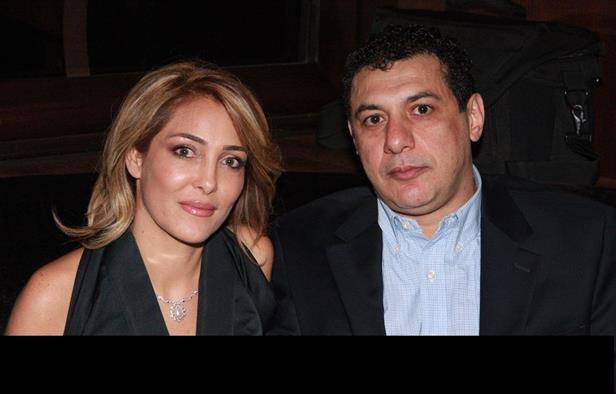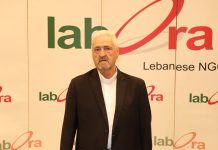Nizar Zakka freed but Lebanon still captive
مكرم رباح: فيما نزار زكا تحرر من سجنه لبنان لا يزال في الأسر
Makram Rabah/Al Arabiya/June 11/2019
Lebanese national Nizar Zakka, whose trip to Tehran following an official invitation by the Iranian government in September 2015 ended with his arrest and imprisonment, is being released after almost four years in Tehran’s central prison. His release comes during a time of heightened tension for Iran’s proxy Lebanese Hezbollah both locally and internationally.
Zakka’s frequent pleas to the Lebanese government to come to his aid were not fruitful until President Michel Aoun, Hezbollah and Iran’s ally, unexpectedly announced that Zakka would soon be released.
Zakka, an information technology expert and a US permanent resident, flew to Iran upon the invitation of Shahindokht Molaverdi, Iran’s vice president for women and family affairs, to be a keynote speaker at a conference on women’s entrepreneurship. Zakka’s state invitation was not enough to protect him from the Iranian Revolutionary Guard, who stopped him on his way to the airport and accused him of having links to the US government and its intelligence community. Zakka’s case is not unique, but routine for the Iranian regime, which has a history of arresting dual citizens, especially Americans, to use as bargaining chips.
Why did the Lebanese government, having ignored Zakka’s case for so long, finally decide to grow a conscience and correct this injustice? Despite being jailed, Zakka was equipped with a calling card and access to a public phone, and had been lobbying for his release. He called on many key state figures, including Prime Minister Saad Hariri, who promised him help but never delivered.
When I spoke to Zakka, he told me that the Lebanese state had previously hesitated to provide any legal or consulate services through its embassy in Tehran that would allow Zakka to give power of attorney to his family to secure his release. But Zakka’s salvation now rests on Major General Abbas Ibrahim, Head of Lebanon’s General Security, who flew Sunday to Iran to arrange for his release.
The choice of Abbas Ibrahim to lead this operation is no coincidence. It is a calculated move to empower the pro-Hezbollah elements within the Lebanese state, especially Aoun and his son-in-law Gebran Bassil. It also allows Iran to make Zakka’s illegal detention look like merely procedural legal proceedings.
Ibrahim is renowned for successfully securing the release of 13 nuns abducted from their convent in the Syrian village of Maaloula in 2014, as well as 16 Lebanese servicemen abducted by the al-Nusra Front following the battle of Arsal in the east of Lebanon.
While Ibrahim’s feats have been praised and peddled as beneficial to the Lebanese state and its image, they were sanctioned by Hezbollah as well as Qatar, with the latter providing the ransom paid to the al-Nusra Front.
The timing of Zakka’s release is also interesting, coinciding with increasing US sanctions against Iran, as well as with a standoff between Aoun and Hezbollah on the one hand and the political parties opposed to Hezbollah’s growing power in Lebanon on the other. The irony is that it was the Iranian Revolutionary Guard that detained Zakka and it was the intervention of their proxy in Lebanon, Hezbollah chief Hassan Nasrallah, that secured his release, according to Iranian officials.
Thankfully Zakka’s nightmare will soon be over, and he will be returning home to his family and loved ones. But his story will linger as a reminder that while he is free, Lebanon and its people are prisoners of Iran, and their supposed liberators are in fact their jailors.





















